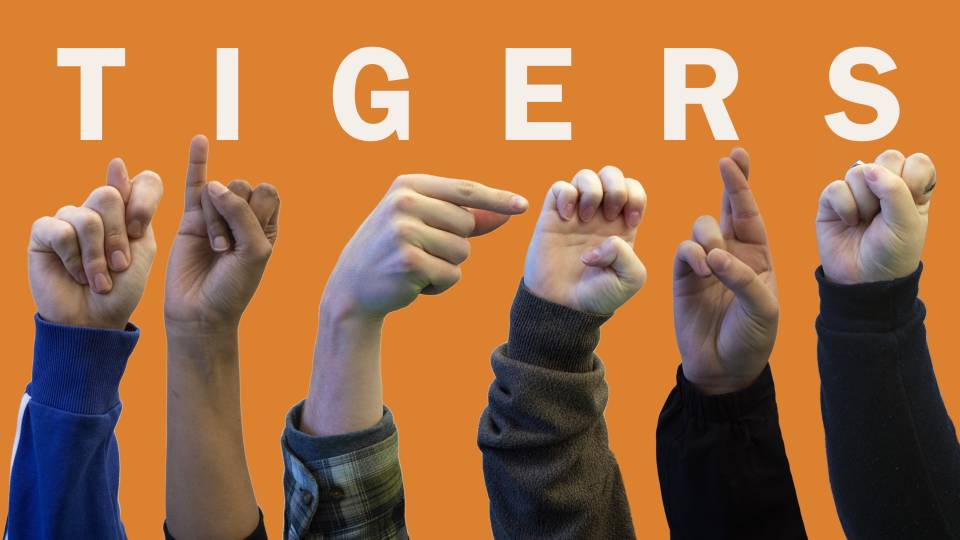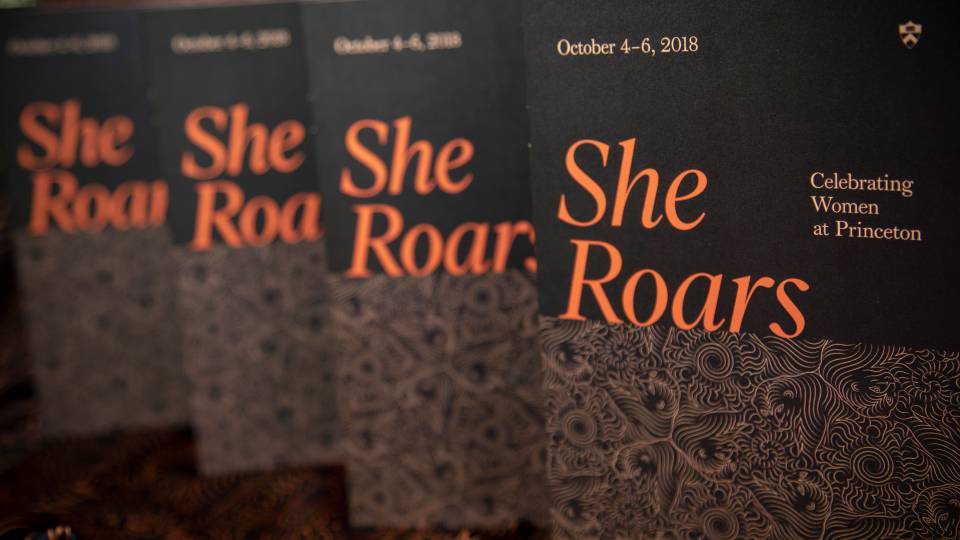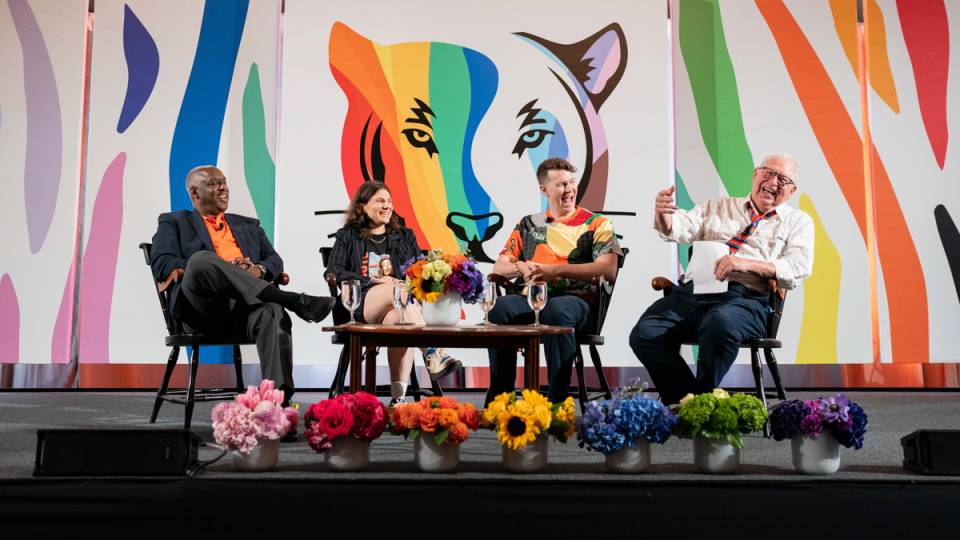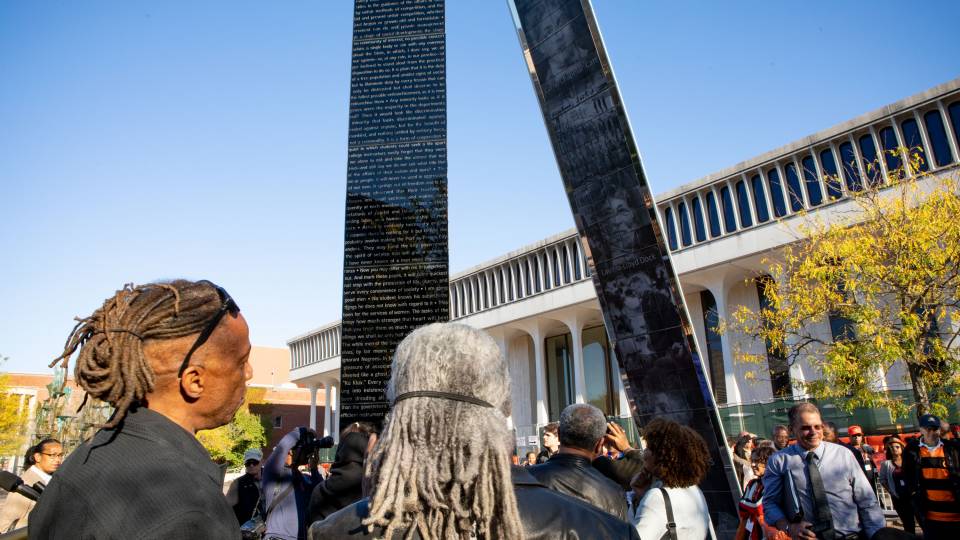The opening of Princeton's AccessAbility Center on April 13 marked a significant step in the University's efforts to ensure equal access to its curricular and co-curricular opportunities for students with disabilities.
Some 100 students, faculty and staff joined in celebrating the AccessAbility Center, housed at 242 Frist Campus Center. The center will "provide opportunities for students to actively explore differing abilities, envision disability as part of diversity, and understand how difference can enrich the educational experience and lives of those in the campus community," said Elizabeth Erickson, director for disability services.
The center will complement the many initiatives and services developed for Princeton's students with disabilities, such as facilitating academic or housing and dining accommodations to support students with disabilities through the Office of Disability Services and the Office of the Dean of Undergraduate Students, and enhancing the accessibility of the University's digital resources through the Office of Information Technology. While the Office of Disability Services serves students with disabilities and is a resource for the entire campus community, the center is intended primarily as a student gathering space.
"[The center] is about celebrating the benefits that we get from having a community with a really diverse range of abilities," said Michele Minter, vice provost for institutional equity and diversity, in her remarks. "This creates a space for that."
"The vision for this space began many years ago when we realized that students with disabilities often don't have a strong voice on campus and that people on campus sometimes make inaccurate assumptions when they don't understand disability," Erickson said. "We thought about how a student center could be a change agent by giving voice to students, educating our constituency, and creating space for meaningful conversation about ability and difference."

Vice Provost for Institutional Equity and Diversity Michele Minter (at podium) addresses students, faculty and staff at the AccessAbility Center’s opening on Thursday, April 13, and reminds Princetonians that they should celebrate their community of diverse abilities. Lisette Weiland (right) provides American Sign Language interpretation, and Elizabeth Erickson, director for disability services, looks on.
The name for the center was chosen because it embodies the Office of Disability Services' two core philosophies: supporting universal access and emphasizing ability rather than disability.
Universal access is the concept of designing an environment so that it can be used as independently as possible by all people regardless of their ability or disability.
The new center includes physical access features, such as an automatic door opener, adjustable-height desks and chairs, and ergonomic computer equipment. It also includes sensory features, such as Braille labels on equipment, computer workstations with visual impairment and hearing impairment access features, guidance for blind or visually impaired students in how to get around the center independently, and an American Sign Language alphabet display.
The center also features psychological design features, such as cool and calming colors on the walls; four lighting options, including overhead and desktop and controlled brightness; and a white noise machine to cancel out general noise in the room, reduce distractions or provide a calming background of sounds. Also available are emoji emotion magnets, squishy balls, play dough, adult coloring books, and write 'n wipe doors to relieve stress.

Office of Disability Services' student fellows, from left, Monica Magalhaes, Mitchell Hammer and Abby Jean-Baptiste explain the AccessAbility Center's universal access features, such as adjustable-height desks and chairs and computer workstations with visual impairment and hearing impairment access features.
The phrase "I define me" is prominently displayed on the back wall of the center and is a message that Erickson wants students to take to heart. "Each person has unique abilities and attributes," Erickson said. "For some, those attributes may be characterized as a disability. But for those people as well as all of us who have differing abilities, we get to choose what defines us and what our identity is."
Senior Mitchell Hammer, a student fellow with the Office of Disability Services, was one of three students who spoke at the opening ceremony. Said Hammer, "[it] feels good for people in the community just to have that official seal of approval from Princeton by having this space available to them like so many other affinity groups on campus have."
Global Accessibility Awareness Day
On April 24, the University will be celebrating Global Accessibility Awareness Day at 1:15 p.m. in 101 Friend Center and Atrium. The keynote speaker will be Haben Girma, who identifies as a person who is deafblind and who graduated from Harvard Law School. The event also will feature Michele Minter, vice provost for institutional equity and diversity, and Jay Dominick, vice president for information technology and chief information officer, who represent two areas of the University's administration that are leading the way for the accessibility initiative at Princeton.
"I hope that this [center] will be the beginning of empowerment for students with disabilities on our campus, reflection by those without, and acceptance of others who are different," added Erickson.
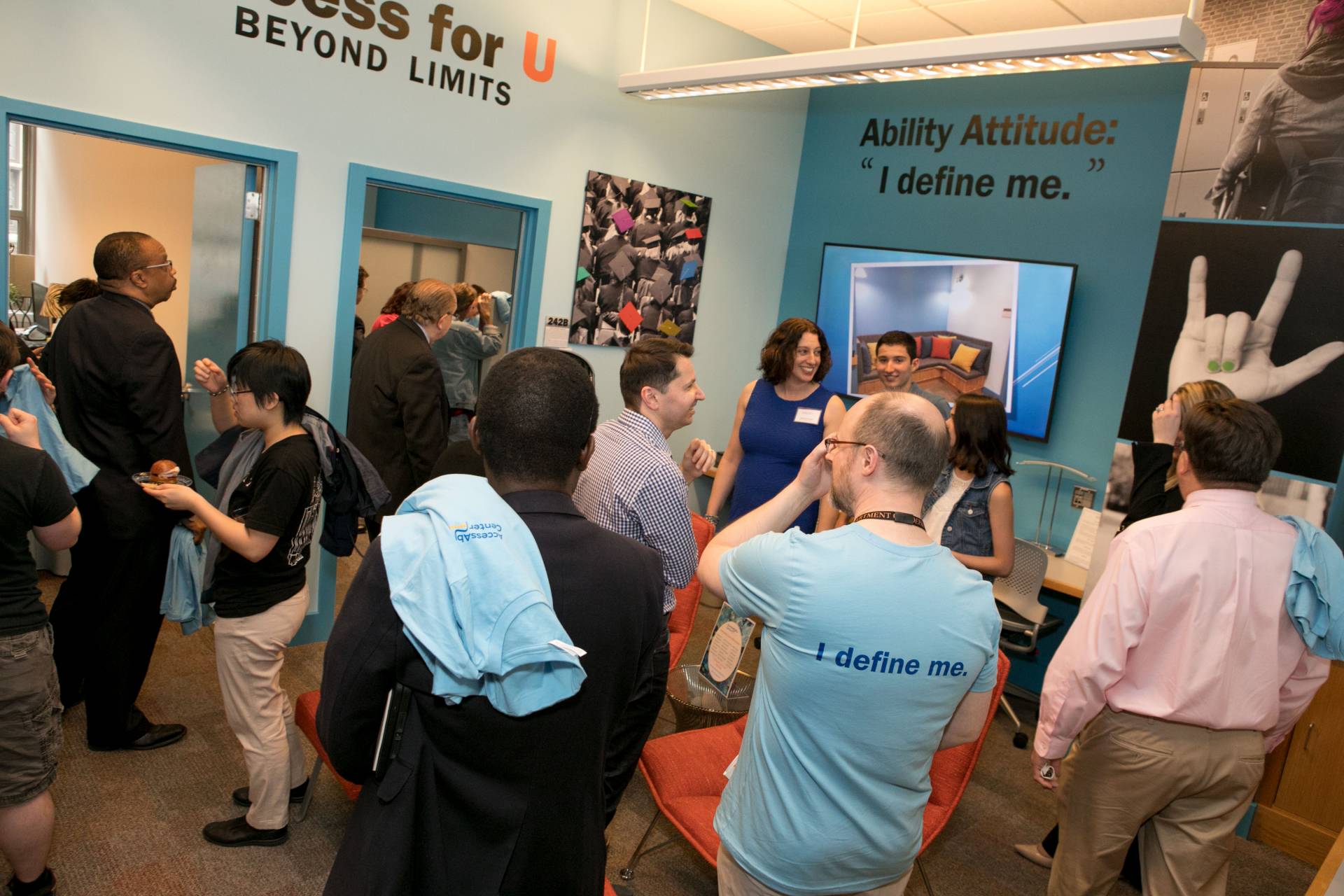
The phrase "I define me" is prominently displayed on the back wall of the AccessAbility Center. "Each person has unique abilities and attributes," says Erickson. "[We] get to choose what defines us and what our identity is."
